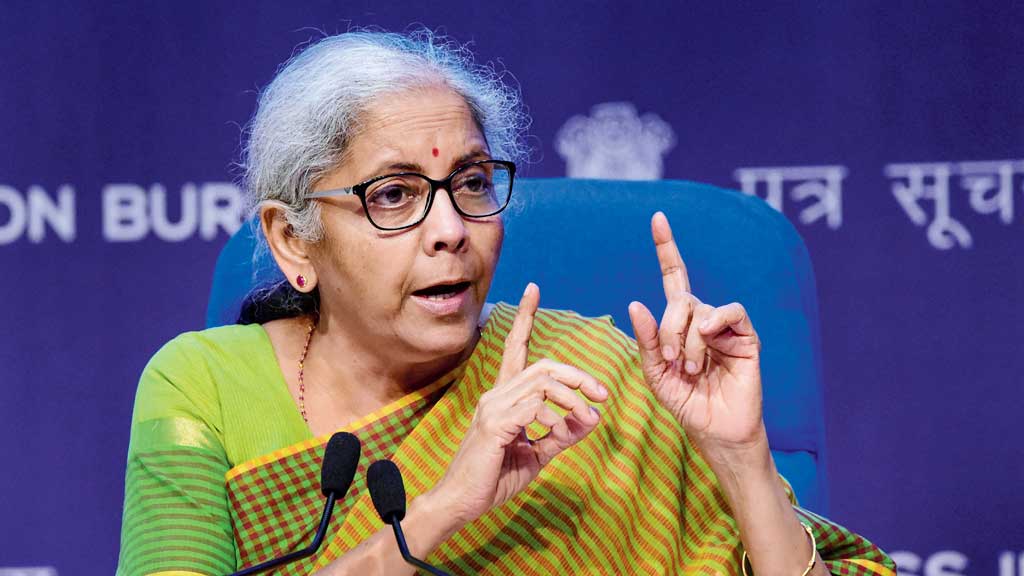The GST Council, chaired by Finance Minister Nirmala Sitharaman, will meet on Friday, which among other things may review tax rate of over four-dozen items and extend till December 31, tax concessions on 11 COVID drugs.
Also, taxing petrol and diesel under the single national GST tax and a proposal to treat food delivery apps such as Zomato and Swiggy as restaurants and levy a 5 per cent GST tax on supplies made by them would be taken up by the Council at its meeting in Lucknow on September 17.
"Finance Minister Smt @nsitharaman will chair the 45th GST Council meeting at 11 AM in Lucknow tomorrow. The meeting will be attended by MOS Shri @mppchaudhary besides Finance Ministers of States & UTs and Senior officers from Union Government & States," the Finance Ministry tweeted.
The Council, comprising central and state finance ministers, will deliberate on the proposal of extending the existing concessional tax rate structure on Amphotericin B, Tocilizumab, Remdesivir and anti-coagulants like Heparin, till December 31, 2021, from the present September 30.
Tax rate on Amphotericin B, Tocilizumab was cut to 'Nil', while Remdesivir and Heparin was reduced to 5 per cent in June 2021.
The Council on Friday may also discuss the proposal of reducing GST from 12 per cent to 5 per cent to seven more drugs till December 31, 2021. These are Itolizumab, Posaconazole, Infliximab, Bamlanivimab & Etesevimab, Casirivimab & Imdevimab, 2-Deoxy-D-Glucose and Favipiravir.
To curb tax evasion, the proposal to make the food delivery platforms like Swiggy and Zomato liable to pay the Goods and Services Tax on restaurant services supplied through them would also be considered by the Council.
Once approved by the GST Council, food delivery apps will have to collect and deposit GST with the government, in place of restaurants, for deliveries made by them. There would be no extra tax burden on the end consumer.
As per estimates, tax loss to exchequer due to alleged under-reporting by food delivery aggregators is Rs 2,000 over the past two years.
In light of the Kerala High Court order, the Council will also discuss taxing petrol and diesel under the GST, a move that may require huge compromises by both central and state governments on the revenues they collect from taxing these products.
In June, the Kerala High Court, based on a writ petition, had asked the GST Council to decide on bringing petrol and diesel within the GST ambit.
The Council will also discuss the interim report of a state-ministerial panel on capacity based taxation on pan masala and composition scheme for brick kilns and stone crushers.
The Panel has recommended a Special Composition Scheme in the Brick Kiln sector with effect from April 1, 2022, prescribing a GST rate of 6 per cent, without ITC, similar to the rate in the services sector.
It has also suggested hiking the GST rate on supply of bricks from 5 per cent to 12 per cent (with ITC), with effect from April 1.
The council will review and also clarify regarding GST rates 32 goods and 29 services.
The items under review are Zolgensma and Viltepso medicines for personal use, solar PV modules, copper concentrate, carbonated beverage with fruit juice, coconut oil, scented sweet supari, oncology medicine, and diesel-electric locomotives.











